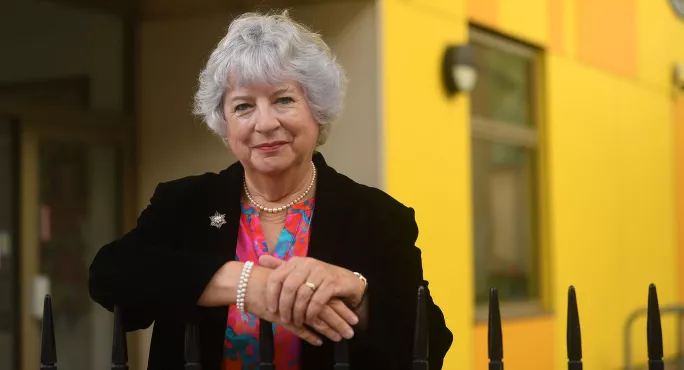State sector accountability is often ŌĆ£self-imposedŌĆØ, an education leader has said, ahead of OfstedŌĆÖs consultation on its new inspection system.
Dame Alison Peacock, chief executive of the Chartered College of Teaching, said that this pressure often stemmed from good intentions, but had gone too far.
ŌĆ£The state sector is pretty driven by accountability, in a way thatŌĆÖs actually quite often self-imposed and in a sense that you want to do the best you can - like if your mother-in-law was coming over, you want it all polished. But it has come out of kilter,ŌĆØ she told audience members at a panel for The Commission on the Future of Independent Schools.
The commission called for independent schools to receive the pupil premium to boost their uptake of disadvantaged children, among a series of other government recommendations.
Dame Alison, who is commissioner for the report in a personal capacity, was responding to a question about how state schools can encourage the same ŌĆ£virtuesŌĆØ in pupils that independent schools can do.
ŌĆ£We need to do more, and we are trying to do as much as we can, to build the confidence and self-efficacy of state school teachers to say, ŌĆśIt doesnŌĆÖt matter what you think of us OfstedŌĆÖ, because we know, our children know, our parents know, that weŌĆÖre doing a great job,ŌĆØ Dame Alison continued.
Her comments come as Ofsted is due to publish its report card consultation later this month, after the government scrapped single-word grades last September.
The Education Policy Institute also released a report this week which warned that the current accountability system ŌĆ£does not adequately reflect how schools are now runŌĆØ.
State school pupils need more ŌĆśopportunitiesŌĆÖ
In response to the same question as Dame Alison, Jodh Dhesi, CEO of the King Edward VI Foundation in Birmingham, and a fellow commissioner, said that many state school pupils are lacking in ŌĆ£role modelsŌĆØ.
Mr Dhesi, who runs private and state schools, added: ŌĆ£One of the biggest things that we can do is to show young people the world and what opportunities there are, what they could achieve,ŌĆØ he said.
Some of the ŌĆ£best schoolsŌĆØ have a ŌĆ£guaranteed entitlement for pupils to be able to see things that they havenŌĆÖt seen beforeŌĆØ, he said.
GCSE prep in state schools ŌĆśa kind of machineŌĆÖ
Responding to a question about how the independent school sector can align with government priorities, Dame Alison said ŌĆ£the independent sector have a lot to teach the state sector aboutŌĆØ.
Using GCSEs as an example, she said that work towards GCSEs begins in a typical state school at the age of 11 and ŌĆ£is a kind of machineŌĆØ.
However, in independent schools, Dame Alison said that she sees ŌĆ£a much greater sense of proportionŌĆØ, with GCSEs being ŌĆ£one measure that is takenŌĆØ.
It is much more balanced against a ŌĆ£flourishing agendaŌĆØ, which Dame Alison said is a government priority, and leads to better mental health and wellbeing for private school pupils as a result.
ŌĆ£If only we could rebalance a little bit, I think that would benefit all of our children.ŌĆØ
Accountability system ŌĆśout of kilterŌĆÖ
Responding to Dame AlisonŌĆÖs comments on accountability, Pepe DiŌĆÖIasio, general secretary of the Association of School and College Leaders, said: ŌĆ£The accountability system is out of kilter with what parents want from schools and what schools want to do themselves.ŌĆØ
He gave the example of schools prioritising inclusion and striving for curriculum breadth ŌĆ£even though the system actually disincentivises them from doing soŌĆØ.
But instead of expecting schools to do these things despite the accountability system, ŌĆ£it should instead better align with such expectations and support schools in their endeavoursŌĆØ, he said.
Report cards were an opportunity for this sort of change but ŌĆ£must be done well and not become another bewildering series of hurdles over which schools and colleges are expected to jumpŌĆØ, he added.
For the latest education news and analysis delivered every weekday morning, sign up for the Tes Daily newsletter





